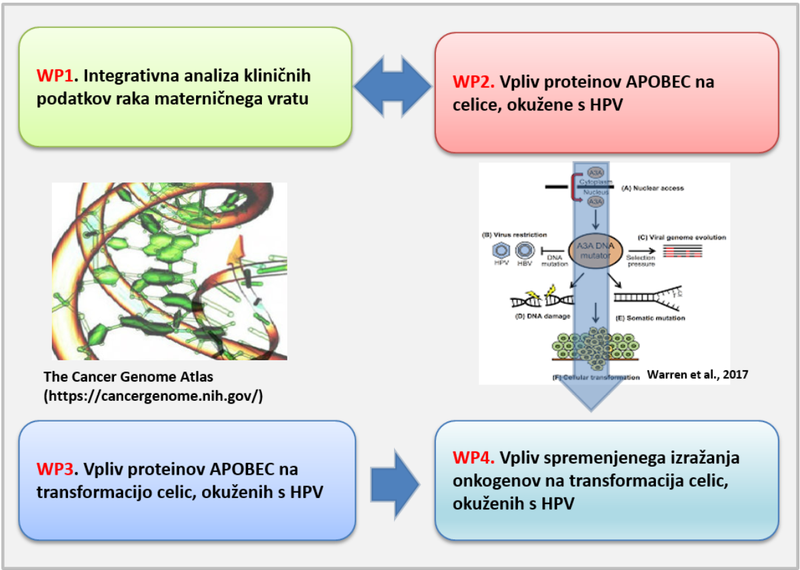Role of APOBEC proteins in the oncogenesis of HPV viruses
Abstract
Human papillomaviruses (HPV) are one of the most prevalent sensually transmitted pathogens and are responsible for more than 5% of all human cancers, including cervical cancer and HPV-associated head and neck cancer. APOBEC3 (A3) proteins are cytidine deaminases capable of DNA and RNA editing. DNA editing activity represents an important part of the innate immune response to viral infections. However, this intrinsic host defence mechanism may also be responsible for long-term host DNA hypermutation and cancer development. Recent wide-genome studies have identified APOBECs as the primary source of somatic mutations in HPV-driven cervical cancer, while the molecular mechanisms of oncogenesis remain largely unknown.
Our long-term goal is to elucidate the role of APOBEC proteins in the oncogenesis of HPV viruses. We will approach these processes from various perspectives, including big data biostatistical analyses, genetic studies, and molecular and cell biology experiments.
Our specific objectives are:
a) analyse genetic and epigenetic changes induced by APOBEC3 expression in cervical cancer samples and HPV model systems,
b) (ii) elucidate critical timing and mechanisms of APOPBEC-driven cell transformation in HPV infected host cells.
The first part of the project (WP1) is dedicated to the integrative analysis of clinical cervical cancer datasets collected in The Cancer Genome Atlas (TCGA), focusing on the expression of A3 proteins in correlation with host genes in the HPV context. Host genome methylation and miRNA expression will also be investigated. The second part of the project (WP2) will use HPV model systems that mimic different stages of HPV infection. We will investigate (i) when APOBEC mutations start to accumulate, (ii) whether APOBEC mutations occur before non-APOBEC mutations, and (iii) whether the non-editing activity of A3 proteins is involved in these processes. The final part of the project (WP3 and 4) will focus on the mechanisms of APOBEC-driven transformation in HPV-infected cells.
The results of the proposed study will contribute significantly to the existing knowledge on the involvement of APOBEC proteins in HPV-related oncogenesis and will advance research progress in other viral infections regulated by APOBEC proteins, such as other small DNA tumour viruses. Biostatistical analysis of clinical data will focus primarily on identifying biomarkers with high prognostic potential. Understanding somatic events following HPV infection and persistence may aid in the development of biomarkers for early detection, particularly when mutations in precancerous lesions are characterised. Somatic mutations may also profoundly influence prognosis and treatment decisions.
Partners in the project: Laboratory for Environmental and Life Sciences – University of Nova Gorica (coordinator), Faculty of Pharmacy – University of Ljubljana, Medical Faculty – University of Ljubljana
Duration: 1 September 2020 – 31 August 2023
Bibliography of the research group
Publications:
Carse S, Bergant M, Schäfer G. Advances in Targeting HPV Infection as Potential Alternative Prophylactic Means. Int J Mol Sci. 2021, 22(4):2201. doi: 10.3390/ijms22042201.


